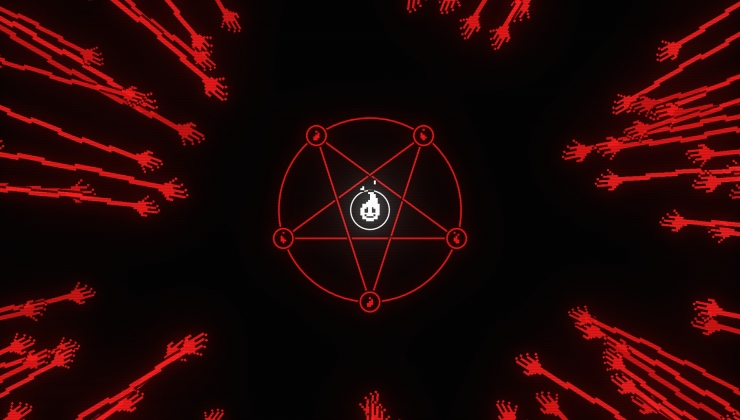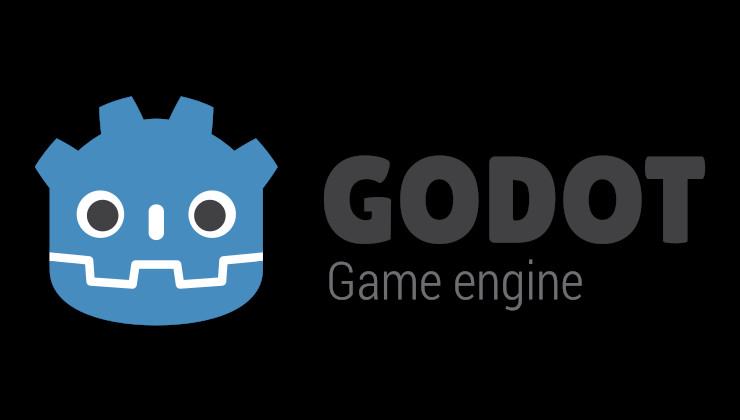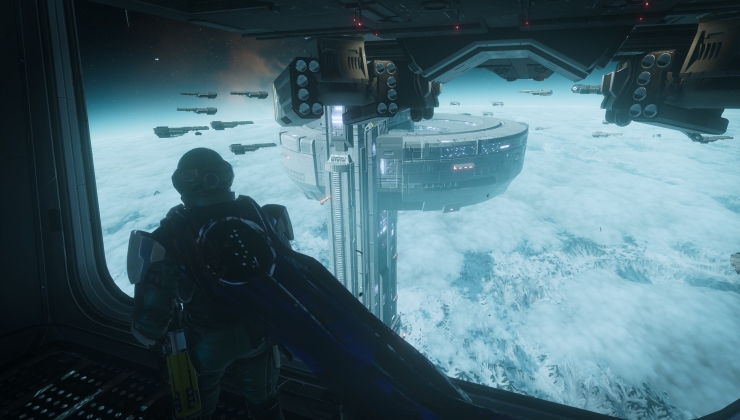Crossroads Inn and later Crossroads Inn Anniversary Edition from developer Klabater was crowdfunded in March 2019 and later released in October 2019 and now Klabater are leaving Linux and macOS behind.
This is one title that's had a bit of a rough history. At release it was a complete mess, so much so that they later rebranded it to Crossroads Inn Anniversary Edition and it didn't exactly get much better from there. On Steam it has a Mixed overall score from users, on GOG it's a low 2.3 / 5 stars and across Metacritic it also has a rather low 59.
Seems like Klabater are starting to distance themselves from it with an abrupt announcement on Steam that mentioned:
We are working to get patch 3.0.6 playable for Mac and Linux users however, once that is complete, support for these platforms will be discontinued.
That was it, all that was said about dropping two platforms. Not even a basic and simple apology, no details on why it's being done. I have to admit my disappointment in Klabater on the handling of this game.
This has been added to a list of other games that did the same on our Wiki. A real shame when this happens but thankfully it's not exactly a game that was turning any heads. Even so, it's still a reminder that this does happen at times. It is again another part of the reason that Valve likely teamed up with CodeWeavers to bring Steam Play Proton to play Windows games unofficially, but that doesn't change the frustration of paying customers being supported, and then one day just - not.
We did reach out to Klabater to ask for further clarification to no reply.
I am pretty sure they had good reasons but it is a pity they did not care enough to share them with us.
Quoting: hardpenguinBooo.It's generally quite straightforward: they aren't very good at game development.
I am pretty sure they had good reasons but it is a pity they did not care enough to share them with us.
The, "oh, but the sales," or, "oh, but the fragmentation," or, "oh, the graphics drivers," are just flimsy excuses because they don't want to admit to themselves that they kinda suck at their job.
For the wiki the situation of wargame red dragon is weird. The last update broke the game, they fixed it with a 13.5 GB patch (!) so dunno what to expect.
Last edited by gojul on 14 Apr 2021 at 11:15 am UTC
Quoting: CatKillerIt's generally quite straightforward: they aren't very good at game development.No. And saying things like this only proves you have no idea not only about game development but also project management.
The, "oh, but the sales," or, "oh, but the fragmentation," or, "oh, the graphics drivers," are just flimsy excuses because they don't want to admit to themselves that they kinda suck at their job.
Quoting: hardpenguinYes but to be fair it also sounds like this company has no idea what project management is eitherQuoting: CatKillerIt's generally quite straightforward: they aren't very good at game development.No. And saying things like this only proves you have no idea not only about game development but also project management.
The, "oh, but the sales," or, "oh, but the fragmentation," or, "oh, the graphics drivers," are just flimsy excuses because they don't want to admit to themselves that they kinda suck at their job.
Quoting: hardpenguinMaking a game multiplatform from the start lets you make your game better cheaper, faster, and easier even if you never make a single sale on another platform. When you're looking for bugs to squash you want to throw your code at everything you can find. Different compilers, different environments. Bugs in your code might be elusive (but still present) in one environment, but be able to be replicated every time in a different one, which lets you find it and fix it. Making something work on Linux gets you a whole bunch of different compilers and environments for free, which helps you debug your code that you might also be using on Windows, PlayStation, Xbox, Switch, wherever. And, hey, now that your application is nicely modular and spec-compliant, with separation of tasks, and survives all sorts of changes in environment, you've got handy entry points should you want DLC, or to help with modding through Steam Workshop if you want.Quoting: CatKillerIt's generally quite straightforward: they aren't very good at game development.No. And saying things like this only proves you have no idea not only about game development but also project management.
The, "oh, but the sales," or, "oh, but the fragmentation," or, "oh, the graphics drivers," are just flimsy excuses because they don't want to admit to themselves that they kinda suck at their job.
But please, tell us more about how sloppy coding practices aren't a sign of sloppy coding practices.
Quoting: bekoWell. This one is still collecting dust on my Wishlist. I never purchased it because of the mess it was according to reviews. That's some bucks saved, I guess.Same here. I might have bitten if the Linux version had made it to GOG, but that seems totally out of the question now.
Quoting: CatKillerVery much this! I still don't know why there aren't more development houses seeing the benefits here. So many of them have no problems with releasing their server side stuff for Linux, but not the client. So they clearly have SOME coders working for them that are aware of how Linux development works. Switching to Vulkan/OpenGL as the main API vs DirectX gives you so much more flexibility on where you can release your game. Look at how many of the games on the Switch also have native Linux releases. That should kind of show how wise a decision it is to release on multiple platforms from the beginning, and use engines that support everything equally.Quoting: hardpenguinMaking a game multiplatform from the start lets you make your game better cheaper, faster, and easier even if you never make a single sale on another platform. When you're looking for bugs to squash you want to throw your code at everything you can find. Different compilers, different environments. Bugs in your code might be elusive (but still present) in one environment, but be able to be replicated every time in a different one, which lets you find it and fix it. Making something work on Linux gets you a whole bunch of different compilers and environments for free, which helps you debug your code that you might also be using on Windows, PlayStation, Xbox, Switch, wherever. And, hey, now that your application is nicely modular and spec-compliant, with separation of tasks, and survives all sorts of changes in environment, you've got handy entry points should you want DLC, or to help with modding through Steam Workshop if you want.Quoting: CatKillerIt's generally quite straightforward: they aren't very good at game development.No. And saying things like this only proves you have no idea not only about game development but also project management.
The, "oh, but the sales," or, "oh, but the fragmentation," or, "oh, the graphics drivers," are just flimsy excuses because they don't want to admit to themselves that they kinda suck at their job.
But please, tell us more about how sloppy coding practices aren't a sign of sloppy coding practices.
Quoting: CatKillerExperience has taught me none of this is true.Quoting: hardpenguinMaking a game multiplatform from the start lets you make your game better cheaper, faster, and easier even if you never make a single sale on another platform. When you're looking for bugs to squash you want to throw your code at everything you can find. Different compilers, different environments. Bugs in your code might be elusive (but still present) in one environment, but be able to be replicated every time in a different one, which lets you find it and fix it. Making something work on Linux gets you a whole bunch of different compilers and environments for free, which helps you debug your code that you might also be using on Windows, PlayStation, Xbox, Switch, wherever. And, hey, now that your application is nicely modular and spec-compliant, with separation of tasks, and survives all sorts of changes in environment, you've got handy entry points should you want DLC, or to help with modding through Steam Workshop if you want.Quoting: CatKillerIt's generally quite straightforward: they aren't very good at game development.No. And saying things like this only proves you have no idea not only about game development but also project management.
The, "oh, but the sales," or, "oh, but the fragmentation," or, "oh, the graphics drivers," are just flimsy excuses because they don't want to admit to themselves that they kinda suck at their job.
But please, tell us more about how sloppy coding practices aren't a sign of sloppy coding practices.
Quoting: Sayuri25+ years experience in software development have taught me that @CatKiller is spot on. I can't even count the number of bugs that we fixed in our software for Windows when we initially ported it to Linux at a previous work place.Quoting: CatKillerExperience has taught me none of this is true.Quoting: hardpenguinMaking a game multiplatform from the start lets you make your game better cheaper, faster, and easier even if you never make a single sale on another platform. When you're looking for bugs to squash you want to throw your code at everything you can find. Different compilers, different environments. Bugs in your code might be elusive (but still present) in one environment, but be able to be replicated every time in a different one, which lets you find it and fix it. Making something work on Linux gets you a whole bunch of different compilers and environments for free, which helps you debug your code that you might also be using on Windows, PlayStation, Xbox, Switch, wherever. And, hey, now that your application is nicely modular and spec-compliant, with separation of tasks, and survives all sorts of changes in environment, you've got handy entry points should you want DLC, or to help with modding through Steam Workshop if you want.Quoting: CatKillerIt's generally quite straightforward: they aren't very good at game development.No. And saying things like this only proves you have no idea not only about game development but also project management.
The, "oh, but the sales," or, "oh, but the fragmentation," or, "oh, the graphics drivers," are just flimsy excuses because they don't want to admit to themselves that they kinda suck at their job.
But please, tell us more about how sloppy coding practices aren't a sign of sloppy coding practices.
Last edited by F.Ultra on 14 Apr 2021 at 10:38 pm UTC
Given this news what I'm going to do is just delete it from the wishlist and forget all about it.
I really wanted this game to succeed but I don't have any confidence of that ever happening now, regardless of platform. Time to remove it from the wishlist.
[Travellers Rest](https://store.steampowered.com/app/1139980/Travellers_Rest/) is another I've been watching which is in the same vein as Crossroads. It's still in EA but has very good reviews and looks like the gameplay is quite fun from what I've watched and read. Unfortunately, it's only showing Windows as a supported platform currently. Due to the somewhat low-tech nature of it, I'd expect it to work well on Proton/Wine. The other (minor) strike against this one, for me at least, is that the graphics are more JRPG-style. Not really that big of a deal but I much preferred the graphics style of Crossroads.
Last edited by foobrew on 15 Apr 2021 at 7:08 pm UTC
I can't remember, does the wishlist show the dev that it is there, and does it show preferred OS?
Quoting: slaapliedjeIt is games like this why I stopped (almost) getting anything that is in EA. Basically if I like the ifldea, I will put it on the wishlist.Both. The devs get to see the number of wishlists (which also affects placement in the store) expandable by platform. You need to set your preferences to only show you games for the platform you're interested in for your wishlist entry to be counted as a particular platform, though.
I can't remember, does the wishlist show the dev that it is there, and does it show preferred OS?












 How to setup OpenMW for modern Morrowind on Linux / SteamOS and Steam Deck
How to setup OpenMW for modern Morrowind on Linux / SteamOS and Steam Deck How to install Hollow Knight: Silksong mods on Linux, SteamOS and Steam Deck
How to install Hollow Knight: Silksong mods on Linux, SteamOS and Steam Deck